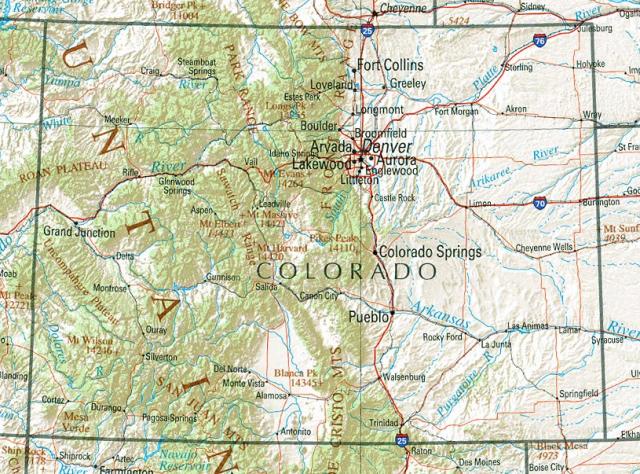I’ve just completed a trip out to the National Center for Atmospheric Research in Boulder, Colorado—a town that’s in many ways the chief hub for our country’s climate scientists, as well as for a variety of other researchers (especially on weather and renewable energy) and many science education specialists. My visit was focused on science communication, but another theme kept coming up: climate science education, and the conflicts arising therein.
A lot of people out here seem worried about growing resistance to climate science teaching in schools. It was a regular topic of conversation, and at the end of my public talk, one audience member asked whether there needs to be an equivalent of the National Center for Science Education for the climate issue. (The National Center for Science Education is the leading organization defending the teaching of evolution in the U.S.). And no wonder: This state has already seen one of the most direct attacks on climate education yet—although it seems to have fizzled.
Last year, a group called “Balanced Education for Everyone” was linked to an effort to try to prevent teaching about human-caused climate change in Mesa, Colorado schools—although the Denver Post reports that the organization has since disbanded, for reasons that seem unclear. “Balanced Education for Everyone” had also been supporting including the anti-global warming movie “Not Evil Just Wrong” in schools, as well as a climate “skeptic” curriculum that went with it.
Similarly, in a recent study published in the Journal of Geoscience Education, researcher Sarah Wise reports on a 2007 survey of 628 Colorado teachers, which sought to determine what they currently teach about climate change and what kind of resistance they’ve seen as a result of doing so. The most troubling finding was that 85 percent of the teachers felt that “both sides” of the “debate” over whether climate is human caused should be presented in the classroom. Furthermore, 13 percent of the earth science teachers surveyed said they had experienced pressure from another teacher, parent, or other party not to teach global warming.
Does the future hold more of these conflicts? I think the only reasonable supposition is, “yes it will.”
I’ve already discussed here the growing trend towards folding climate change into anti-evolution bills, and singling “global warming” out as a uniquely controversial subject to be critiqued in the classroom. I think the most logical expectation is that the national controversy over climate change will continue to filter into schools just as it diffuses across all levels of society–and moreover, it should follow a predictable pattern.
Just as the general public breaks into “6 Americas” when it comes to levels of knowledge about (and acceptance of) climate change science, so will teachers, school districts, and communities. And in those communities where the so-called “dismissives” (the most devout climate science rejecters, and currently about 12 % of the U.S. as a whole) are most prominent, conflicts will be most likely to erupt.
Meanwhile, the vast majority of what’s going on in schools will never draw significant public attention. A recent study on evolution education, for instance, found that 13 percent of public school science teachers in the U.S. actively teach creationism—even though this has repeatedly been ruled unconstitutional. Legally, every one of those teachers (and their schools) could be sued, but we see nothing like a proportionate number of lawsuits erupting. In all likelihood, this creationist teaching is mostly happening in communities where it is perfectly well accepted and not even controversial. It’s under the radar.
Meanwhile, the evolution survey also found that fully 60 percent of teachers “compromise” in some way on its teaching so as to avoid controversy—showing “both sides,” dodging the issue, giving caveats, etc. In light of the politicization of climate science—and the Colorado data above—we have to assume that many teachers will follow a similar pattern on the teaching of the anthropogenic causes of climate change.
What can we do about this? We certainly do need a national organization to defend climate education in schools—and we need much more focus on preparing teachers for handling controversies. Those teachers who are well informed, and confident in their abilities, will be the least likely to fall into the bad teaching traps outlined above, or to cave to political pressure from parents and others in the community. We need to empower them—so they can accurately inform their students about the single most important thing happening to the planet.
Subscribe to our newsletter
Stay up to date with DeSmog news and alerts






